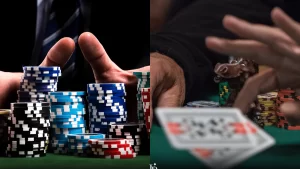
The first tournament poker deal is always intimidating, and some players even consider accepting random deals to maximize prize money. While accepting random deals does have its advantages, it also entails sacrificing EV. If you want to maximize your prize pool and win tournaments, it is crucial to understand the two most common poker deal methods and their strengths and weaknesses. If you’d like to learn how to maximize your prize pool, keep reading! Here are some tips to make poker deals go your way:
Rakeback. Rakeback is a type of reward program that rewards players for volume and consistency. Rakeback is most frequently calculated through weighted contributed methods, while dealt and shared methods are less common. Understanding how rakeback works is important when finding the best online poker deals. Rakeback percentages can range from 10% to 30%, so you should check the poker rooms’ promotions before making a deposit. If a poker room is offering a high rakeback rate, it may have trouble attracting new players.
A good poker deal will offer free money to new players. These bonuses are usually small amounts of cash, restricted to specific poker games, and are not cashable. Other types of free money are referral bonuses, which are awarded to players who refer friends to play at a poker site. These bonuses vary in value from $10 to $50 and depend on the number of hands the referred player plays. If you’re new to online poker, take advantage of these free money offers. By maximizing these poker deals, you’ll be able to maximize your bankroll and keep your first bankroll alive.
A poker deal can also involve redistribution of prize money. If both players agree to a deal, the tournament clock will stop while players discuss their poker deal. They may not agree on the amount of prize money, but they could still reach an agreement to redistribute it among the players. However, it is important to note that a poker deal can have different implications depending on the payout structure and the players’ personal edge. For example, a player who wins four-figures may receive a larger share than Player 2 or Player 3.
Rakeback is another important consideration in poker deals. The amount of rake the poker room takes from the pot of each hand is another important factor. In a $100 game, a player’s rake would be $45. The poker room would collect $2.25 from the pot in the case of a preflop raise, but would pay nothing if they were to make a $18 preflop raise. A $20 hand would mean $0.95 if the player made a $100 bet.
In a game with multiple decks, the dealer shuffles and cuts the deck and then discards any cards that are exposed. A dealer should always announce a high hand and a low hand before a player can play. The dealer should also announce all raises and pairs, but does not announce straights or flushes. If the dealer has too many cards, a misdeal occurs. If a player has more than one hole card in the deck, the dealer must reshuffle the deck without burning any cards.








